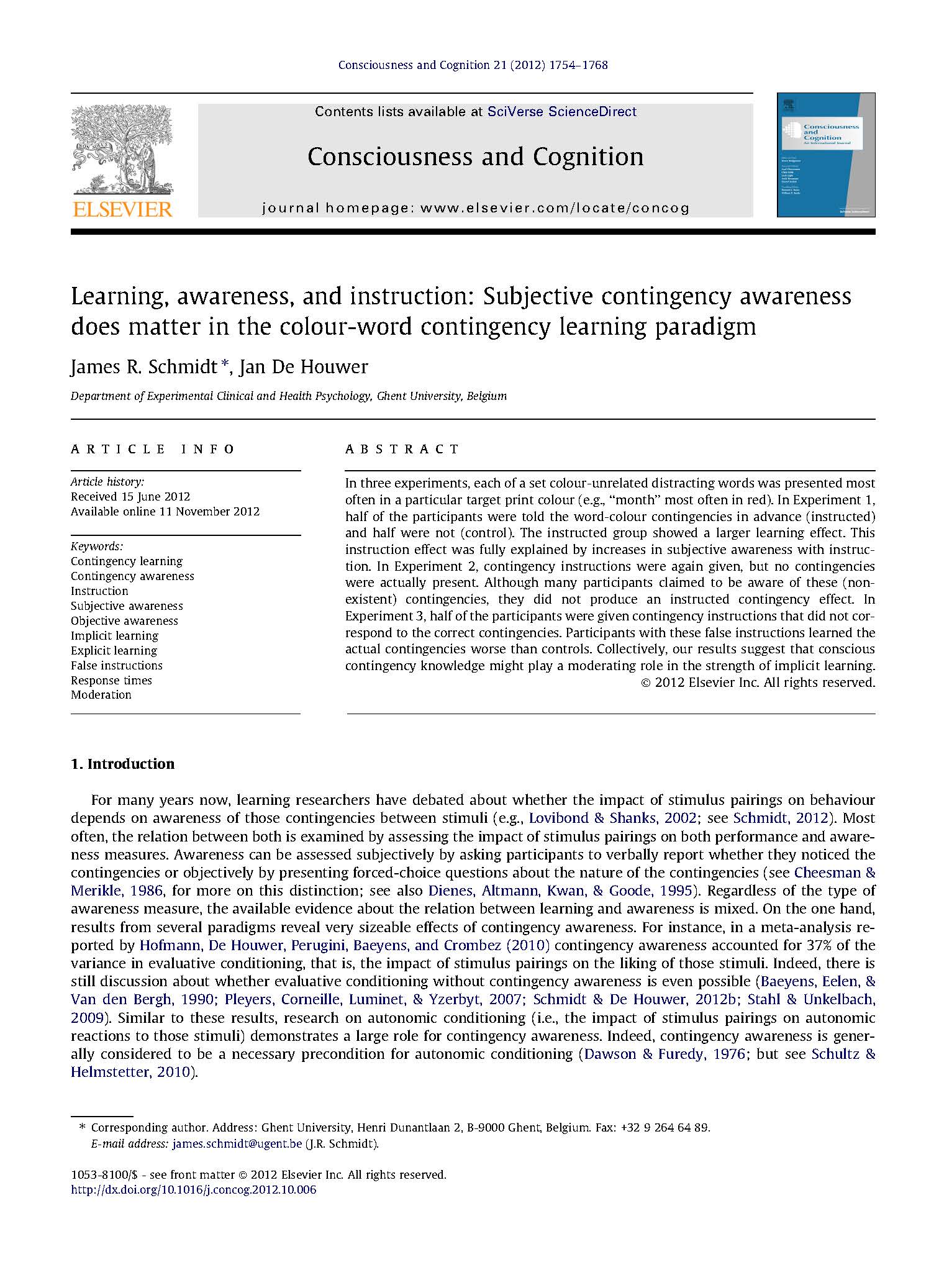In three experiments, each of a set colour-unrelated distracting words was presented most often in a particular target print colour (e.g., “month” most often in red). In Experiment 1, half of the participants were told the word-colour contingencies in advance (instructed) and half were not (control). The instructed group showed a larger learning effect. This instruction effect was fully explained by increases in subjective awareness with instruction. In Experiment 2, contingency instructions were again given, but no contingencies were actually present. Although many participants claimed to be aware of these (nonexistent) contingencies, they did not produce an instructed contingency effect. In Experiment 3, half of the participants were given contingency instructions that did not correspond to the correct contingencies. Participants with these false instructions learned the actual contingencies worse than controls. Collectively, our results suggest that conscious contingency knowledge might play a moderating role in the strength of implicit learning.
Learning, awareness, and instruction: Subjective contingency awareness does matter in the colour-word contingency learning paradigm
